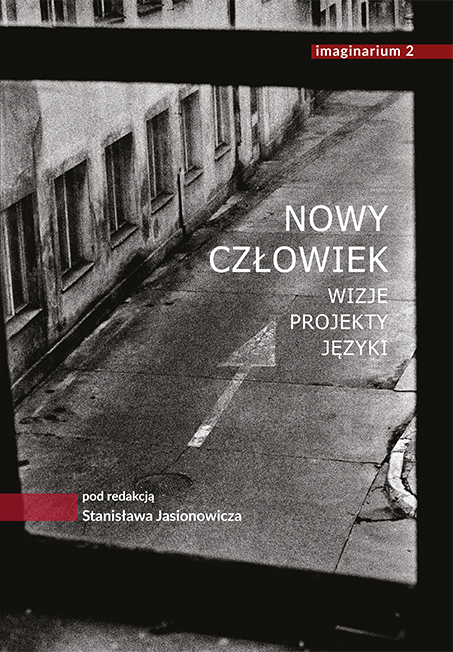Nowy Człowiek: wizje, projekty, języki
Streszczenie
The notion of the New Man, in its various iterations, has functioned in European culture from its earliest history to the twenty-first century. This publication, through the juxtaposition and comparison of modern critical idioms engaged in the discussion of the desire to redefine what it means to be human and the process of becoming “new,” aims to reinvigorate the debate about concepts and visions for the transformation or reinvention of humankind. This approach to the subject allows us to revisit questions about the essence of humanness in a period when belief in permanent traits of human nature is increasingly challenged. The book comprises eighteen chapters divided into four sections, preceded by a comprehensive introduction. The first section, “Questions on Human Nature” deals with the idea of the New Man within the context of questions about human nature and the essence of civilization. In the second section, “Concepts, Contestations, Manifestos,” comprises analyses that present concepts of the New Man as polemical visions—from the post-Enlightenment construct of a rational, powerful being as an antidote to the “old” man through twentieth-century contestations of the existence inalienable human nature. The third section, “The New (?) Man in the New World,” addresses the space that the New Man “inhabits”—understood both as geographical reality and as the regions of the imagination. The fourth and final section, “The New Man in Modern and Post-Modern Literary Expression,” focuses on how this issue is addressed in modern and post-modern literary practice. The reflections of literary scholars, comparatists, cultural scholars, and philosophers from universities in Poland and France have been brought together in this book, published in cooperation with the Pracownia Badań Porównawczych nad Współczesną Kulturą Zachodnią (Center on Comparative Study of Contemporary Western Culture) as the second volume in the Imaginarium series. The books in this series present a comparative approach to literature, art, and other manifestations of Western culture, encompassing dialogue between sympathetic and critical standpoints.
ISBN
978-83-7643-142-0978-83-7643-143-7


